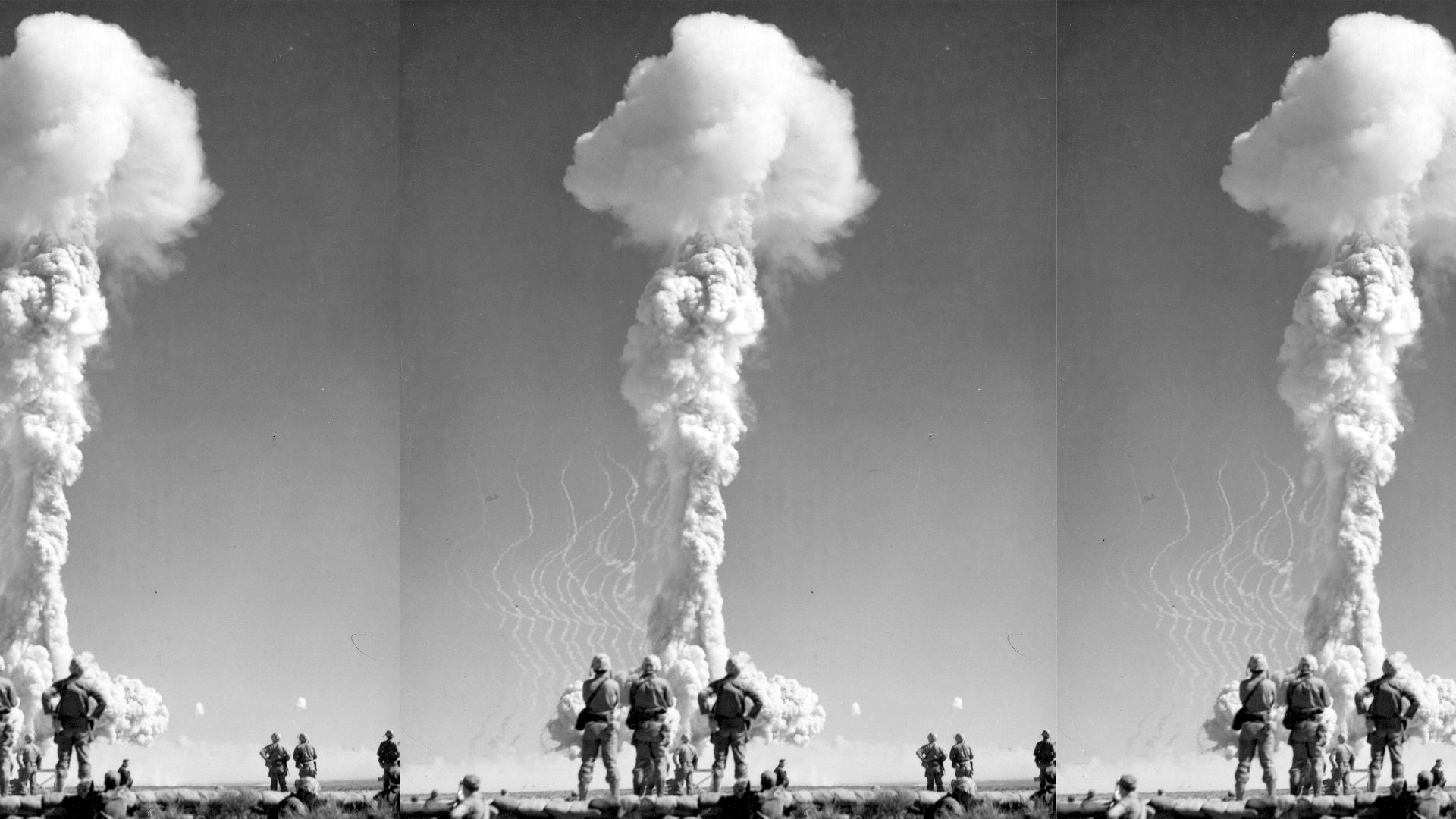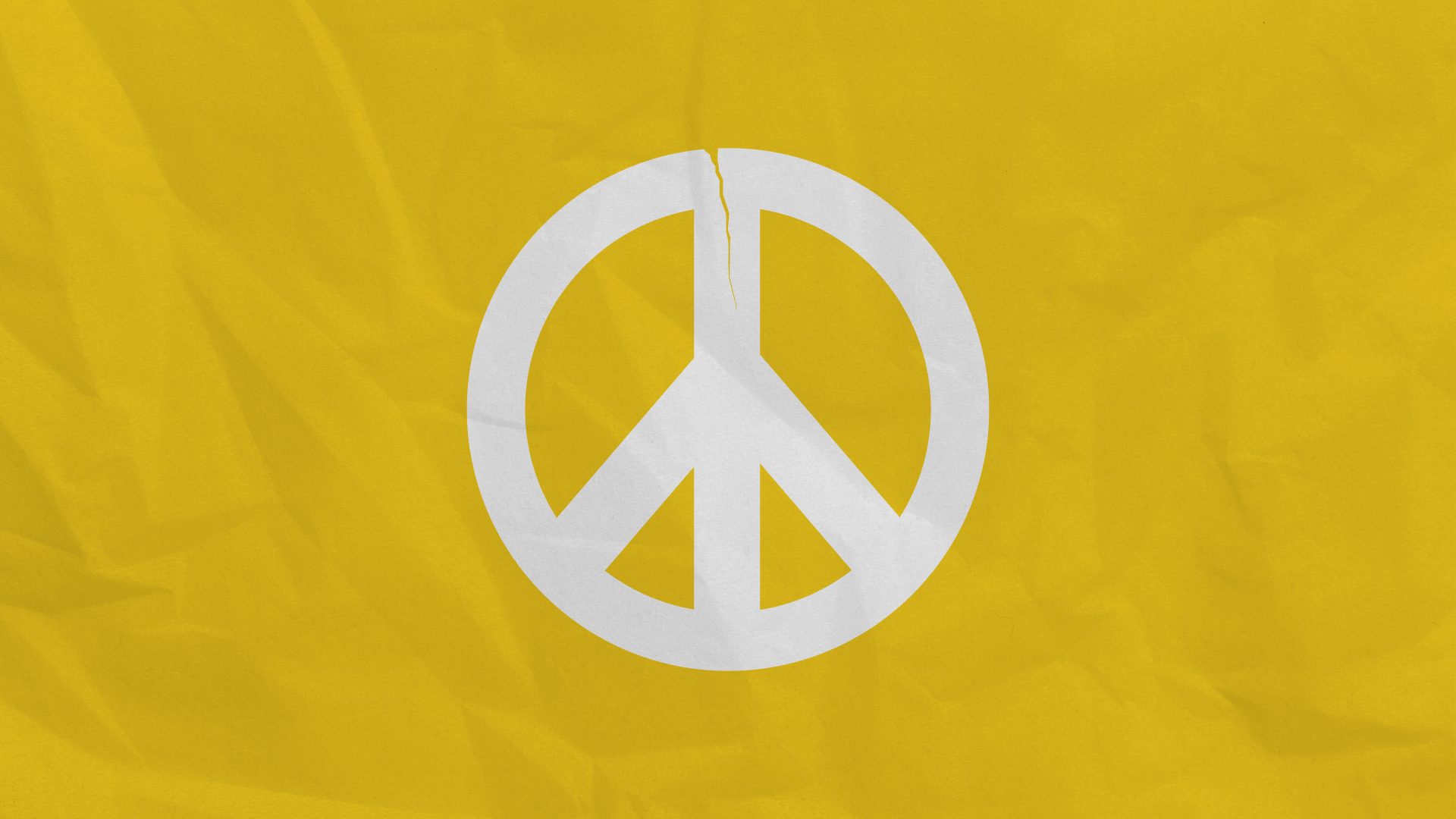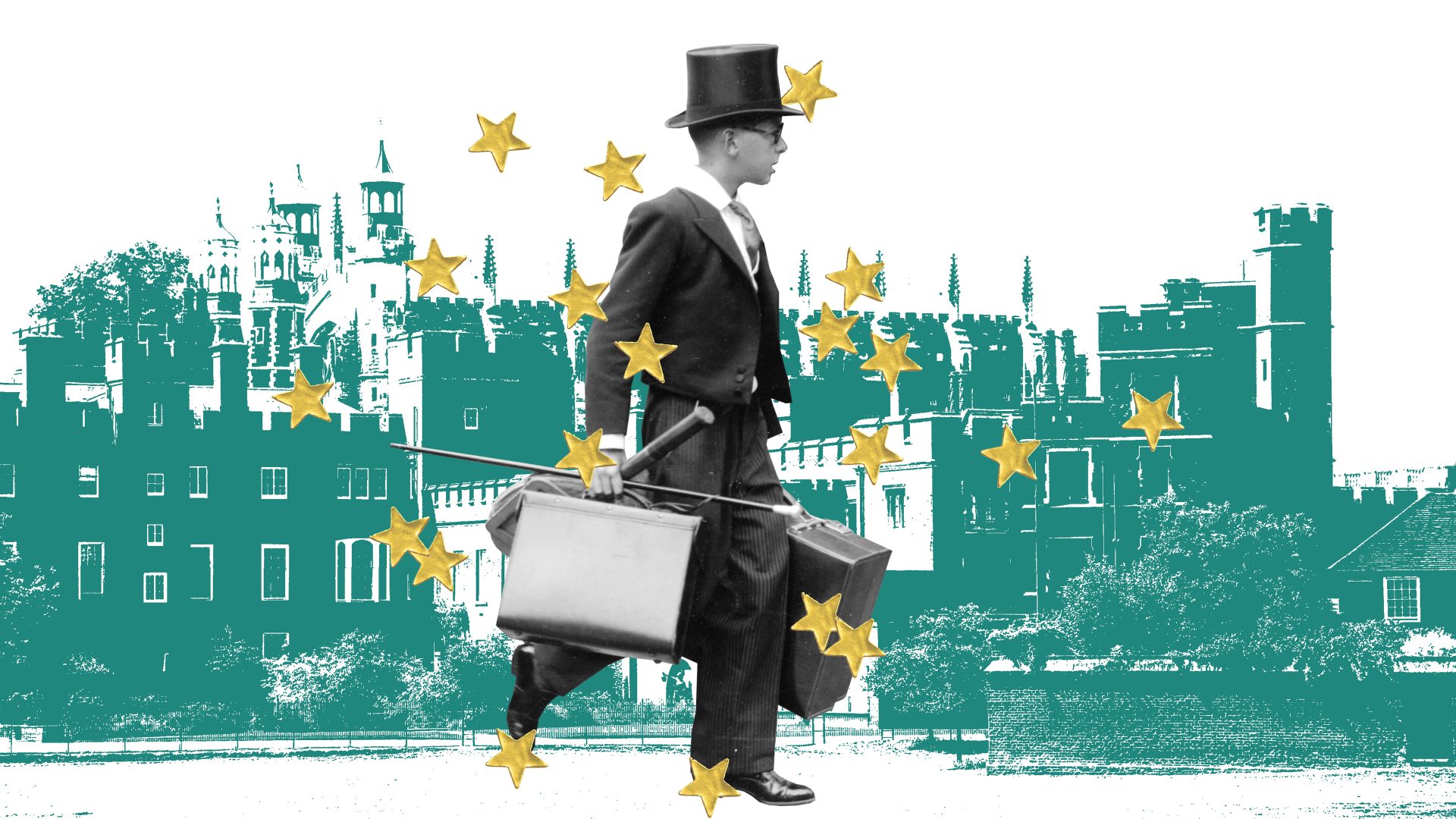From my sickbed (I have Covid) I can see a chimney stack with 10 pots, each leading to a fireplace that was first lit in 1788. The London terrace it is part of was built in the era of Mozart and slavery, and has survived into the era of solar power and Instagram.
Each night, as I go to sleep, I have to face the fact that there is a slight chance that the house, the chimney and all of western civilisation will be obliterated in a nuclear armageddon before morning. That’s where Vladimir Putin’s attack on Ukraine leaves us.
On declaring war, the Russian dictator warned the West that, if Nato interfered militarily in Ukraine, “you will face consequences greater than any you have faced in history”. He then placed nuclear missile forces on “enhanced combat duty”. It was a pre-emptive threat to use nuclear weapons, and has far-reaching implications.
During the cold war, both sides assumed that if one used nuclear weapons, the conflict would escalate into “mutually assured destruction”. By accumulating large nuclear arsenals, Russia and Nato would deter each other from using them.
In the 1980s, both sides deployed short-range, tactical nuclear weapons – but the overall assumption was that deterrence worked. And once the Soviet Union collapsed, the West assumed, it didn’t matter. But in 1999, stinging from its diplomatic reversal in the Kosovo crisis, Russia began to rethink its nuclear doctrine. The head of its national security council demanded permission to use nukes pre-emptively, on a small scale, “in situations critical to the national security of the Russian Federation” – that is, even where the West had shown no intention of going nuclear. By the time the doctrine came to be signed off by the president, the president was its author, Vladimir Putin.
Known in the West as “nuclear de-escalation”, it has been assumed to work like this. Putin invades the Baltic states, takes their capital cities and drops a single, small, nuclear bomb, enough to cause token damage to a western city, and then invites everyone to a peace conference. When western military academies game this scenario out, there are usually two outcomes: either peace on Russia’s terms or nuclear armageddon. There is no situation where western democracies win.
Now, the Ukraine war is giving us an all-too-real variation on the scenario. By threatening nuclear de-escalation from the start, Putin has deterred Nato from conventional intervention. Indeed he has paralysed Nato’s military machine. All the sanctions, all the anti-tank missiles, all the soldiers slipping across the border to join Ukraine’s army are happening because Nato can do nothing else.
But there is worse. On the night Putin put his nuclear submarines on high alert, state TV host Dmitry Kiselyov opened his prime-time show with an overt threat to use them, asking: “Why do we need a world if Russia is not in it?”
It’s a sentiment we’ve heard before. In the last days of the Third Reich, the propagandist Josef Goebbels told journalists that if the Nazis were defeated, “the whole German people will go under with us, and so gloriously that, even after 1,000 years, the heroic downfall of the Germans is in the first place in world history”.
This is not how ordinary dictators think. They are often driven by narcissism and hubris, but remain open to bargaining and rational calculation. Kiselyov’s comment is the clearest indication we are dealing with an extraordinary dictator – a man locked in a room with his problems, brooding on historic injustices, with absolute power over a military machine and the actual nuclear button sitting in a briefcase by his side.
My fear is that Putin does not need western military intervention to trigger a small-scale nuclear strike. Now, as he calls up mercenaries from Syria and starves Mariupol to destruction, he is quite capable of deciding that the end-game should be a small nuclear strike, scaring the West into submission, claiming the whole of Ukraine for Russia and writing himself into the history books.
Or maybe not. Maybe the nuclear threats, the nihilism, the ethnonationalist hatred and the lies are all for show, and what he really wants is the legitimation for his existing conquests in the Donbas and Crimea? Either way, it must cause us to rethink.
The one effective weapon the West holds against Putin is the desire of some – but not all – young and educated Russians for a peaceful, modern, liberal existence, and of the working class for wages they can live on. That’s why the sanctions matter.
Over time, they can make Putin’s system of governing Russia unworkable and trigger, if not a revolution, then a palace coup, by generals who would quite like to live in “a world with Russia in it”.
Putin knows this. For all suggestions that he is crazed, he remains a calculator – but one in whose calculations self-destruction has become a rational option.
If the resistance of Ukraine’s people produces a moment where a ceasefire looks possible, it is rational for the West to take it, and to advise Ukraine to take it, no matter how poor the terms look. That would be the end of the battle, not the war.
After that the entire resources of the West must be focused on deposing Putin, choking off his sources of power, stimulating instability and revolt, and gaining massive technological superiority in the very things he fears – missile defence systems that could neutralise his entire arsenal the moment it is fired.
The global threat of nuclear war has been with us for more than 70 years. But the old mechanisms for containing it are destroyed. That’s the sobering lesson of the past three weeks.




